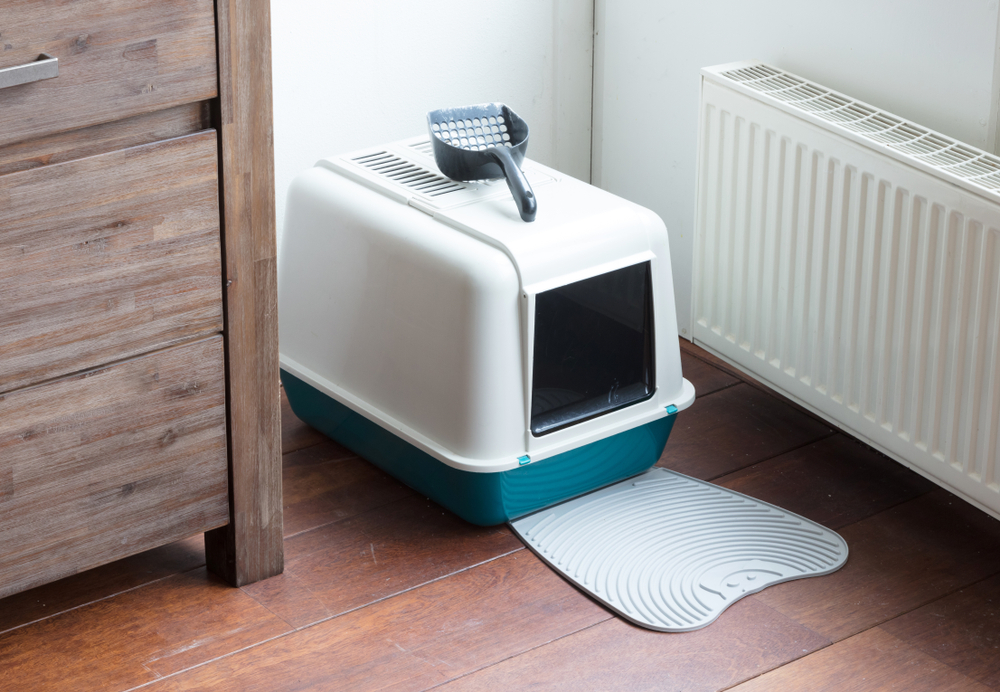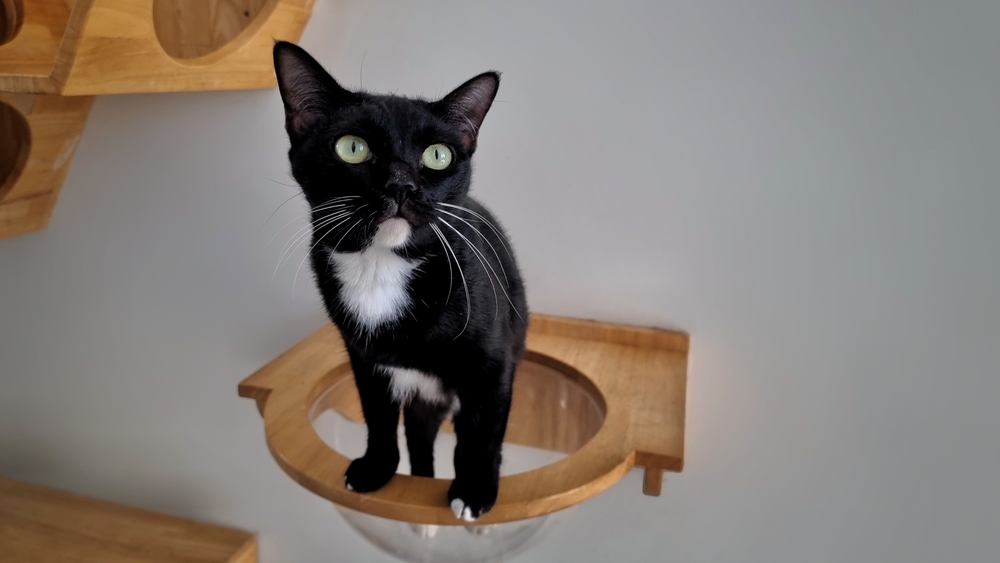Cats can become bored or depressed if not properly stimulated, and they can develop behavioral problems and health conditions that affect their quality of life. Our North Waterloo Veterinary Hospital team wants to help by offering guidelines to ensure your indoor cat remains happy and healthy.
Make your home a cat-friendly environment
Cats are unique creatures who require specific environmental elements for fulfillment. Take steps to make your home cat friendly to ensure your cat’s needs are met. Considerations include:
- Vertical space — As predators and prey animals, cats enjoy surveying their surroundings from an elevated location. Vertical space also provides timid cats with an escape from unwanted attention. Sturdy cat towers and shelving space ensure your cat can appreciate the view from above.
- Cat scratchers — Cats need to scratch, and unless you want your furniture targeted, you should provide appropriate cat scratchers around your home. Cats scratch to sharpen their claws, stretch their muscles, and leave their scent, but not all prefer the same scratchers. Determine your cat’s favorite scratching choice—horizontal or vertical? Cardboard, carpet, sisal, or wood surface?—to ensure you fulfill their scratching needs.
- Hiding places — Cats appreciate having small hiding places, because a refuge helps them feel calm and secure. Studies have shown that cats who have a hiding place are significantly less stressed, especially cats in multi-pet households. Ensure your cat has hiding spots throughout your home, and don’t disturb them during their quiet time.
Activate your cat’s hunting instinct
Cats are born with the instinct to hunt and chase. Activate your cat’s hunting instinct to keep them mentally engaged using these tips :
- Use wand style toys — Wand style toys will be sure to stimulate your cat’s hunting instinct.
- Use a laser pointer — Many cats find the fast-moving dot fascinating, and love chasing the laser light.
- Offer food puzzle toys — Feed your cat using a food puzzle toy that will make them use their brain to obtain their meal.
Bring the outdoors to your indoor cat
Keeping your cat inside helps protect them from outdoor dangers such as predators, parasites, diseases, and busy streets, but they can still enjoy some outdoor elements. Ways to bring the outdoors to your indoor cat include:
- Provide cat friendly plants — Many cats love to nibble plants, and you can plant an indoor cat garden to indulge their need for greens. Cat-safe plants include cat grass, catnip, lemongrass, honeysuckle, parsley, and spider plants. Before allowing your cat access to any plant, research what plants are toxic to cats.
- Install a window perch — Cats are captivated when watching birds and small mammals. A comfortable window perch will allow your cat to safely observe these entertaining creatures.
- Play bird sounds — Playing recorded bird noises will intrigue your cat and stimulate their senses.
Let your cat safely enjoy the outdoors
If you think your cat may benefit from some outdoor time, you can let your cat safely access the outdoors by:
- Building a catio — Let your cat enjoy time in a screened porch where they can see and hear the outdoor environment, but are safe from dangers.
- Leash walking your cat — Teach your cat to walk on a leash to let them safely enjoy the outdoors.
Keep your cat healthy to ensure they remain happy
Ensuring your cat stays healthy will contribute to their happiness. Recommendations to promote your cat’s health include:
- Keeping your cat at a healthy weight — Obesity is a serious health issue for cats, and predisposes them to conditions such as kidney disease, cancer, diabetes, and arthritis. Calculate your cat’s daily energy requirements and feed them the proper amount to keep them at a healthy weight.
- Scheduling regular wellness exams — Cats are expert at hiding illness, and you may not realize they are sick until their condition is advanced. Schedule regular wellness visits to ensure health problems are detected in the early stages when they are easier to treat.
- Providing dental care — Dental disease can lead to significant health issues, including heart and kidney damage. Schedule regular professional veterinary dental cleanings and provide at-home dental care to protect your cat from dental disease.
Practice appropriate cat litter box habits

A cat who is unhappy with their litter box setup can become stressed and disrupt your household, so ensure your cat’s litter box is acceptable. Recommendations include:
- Cleaning the box regularly — Cats won’t tolerate a dirty litter box, and they may protest by doing their business in a potted plant or another inappropriate place. Scoop your cat’s litter box multiple times a day, and change out the litter at least once a week.
- Putting the box in a private area — Cats don’t like to be disturbed while in their toilet. Place their litter box in a private area where they won’t be startled, and ensure the box isn’t near their food or water bowls.
- Providing enough boxes — Cats don’t like to share litter boxes. If you have multiple cats, provide one box per cat, plus one extra box.
- Using the right litter — Most cats prefer clumpable, unscented litter that is only about two to three inches deep.
Keeping your indoor cat happy will help prevent boredom and potential behavioral issues. If you would like to schedule a wellness exam for your cat, contact our North Waterloo Veterinary Hospital team, so we can ensure an underlying health condition doesn’t interfere with your cat’s happiness.







Leave A Comment